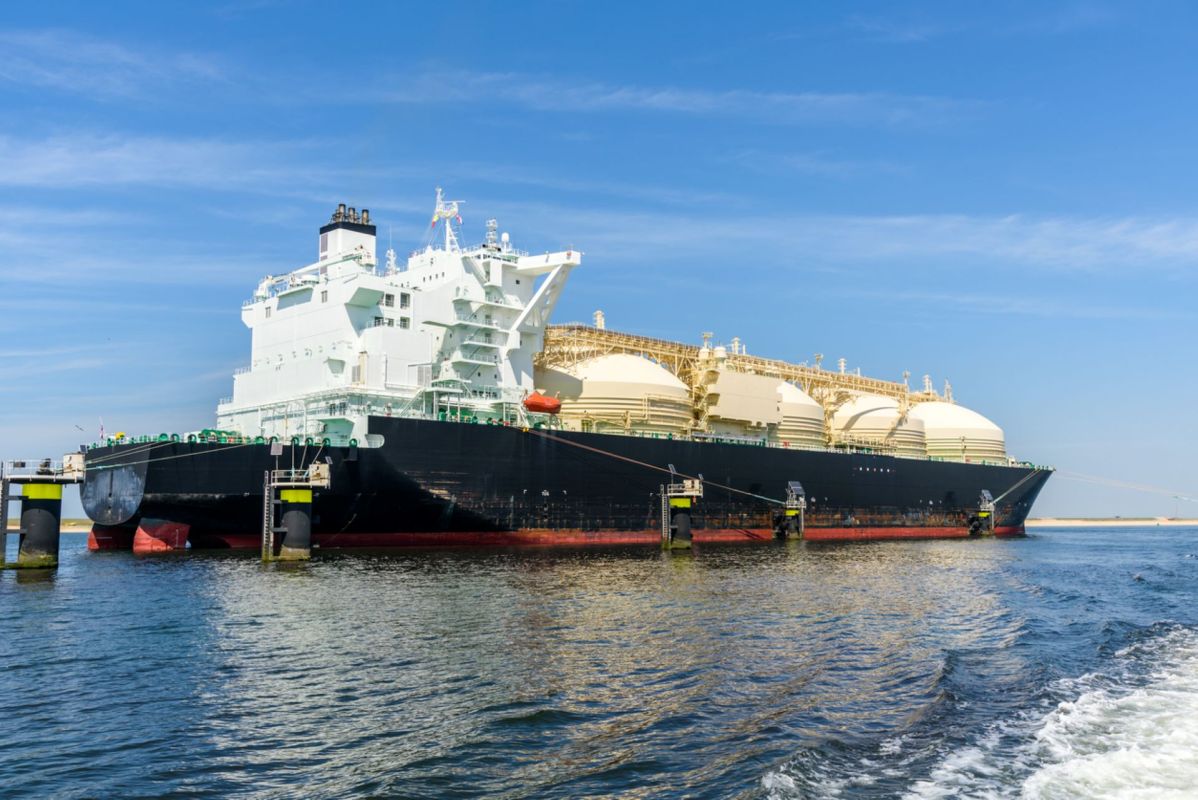A "pending approvals" pause of liquefied natural gas exports has garnered praise from clean-air champions as a sign the Biden administration isn't blind to the fuel's planet-warming impact — even as exports are forecast to grow in coming years.
The hope is it could be part of a transition to cleaner fuels, starting with a policy directive from the highest level of American government.
Exports fulfilling existing agreements, however, will still help to expand the amount of LNG leaving United States ports through the end of the decade as government officials juggle trade agreements, foreign energy sector stability, and concerns about our overheating planet, all detailed in a Jan. 26 statement from the White House about the order.
LNG is a liquefied form of natural gas, pulled from deep in the ground. It is cooled to extremely low temperatures, making it easier to transport and store. It's also a source of planet-warming methane, among the worst types of air pollution.
The pause won't impact the country's 20 existing free trade agreements. The White House noted that exports are expected to double by 2030 and that LNG will continue to be shipped to support allies in the near term and to relieve national emergencies. Even so, the Natural Resources Defense Council called the move a "reality check" for the LNG industry, and it has garnered kudos from clean-energy advocates who want to move away from natural gas and other fossil fuels.
"It's simply not where we need to go," NRDC director of policy analysis Amanda Levin said in the report, which calls for a move to renewables.
Natural gas is considered by government officials to be a cleaner-burning fossil fuel than coal and oil, at least when it comes to carbon dioxide. And some U.S. export recipients are using LNG to wean off those fuels, according to Reuters.
But LNG leaks methane and other pollutants during its lifecycle. Worse yet, methane is 85 times more potent as a planet-warmer than carbon dioxide during the first two decades after its release, a crucial time in the effort to cool the globe to avoid worst-case environmental scenarios, all per the NRDC.
The cleanest option is greater investment in renewable energy at home and abroad as part of a transition to more planet-friendly power systems.
"In LNG, the fossil fuel industry has found yet another way to push a product we should already be moving away from," Levin said.
The U.S. led the world in LNG exports last year at 86 million tons. December marked an all-time high, at 8.6 million tons, the Center for Strategic and International Studies reported. Part of the reason for the uptick is that the U.S. filled an "energy security" void around the world when Russian supplies destabilized after the nation invaded Ukraine in 2022, according to Reuters.
A tougher measure would be a hard sell to trade allies now using LNG in place of coal and oil.
However you stack it up, comparing emissions from one fossil fuel to another is missing the mark, per clean energy advocates.
"We should be comparing it to renewables," Levin said.
Join our free newsletter for cool news and actionable info that makes it easy to help yourself while helping the planet.









